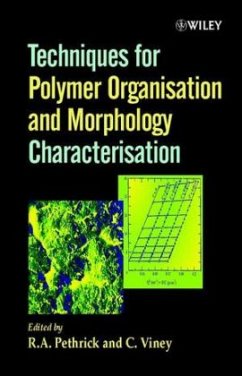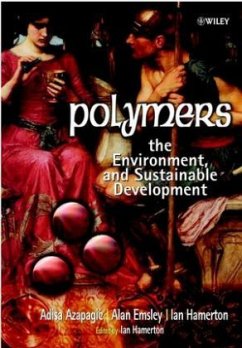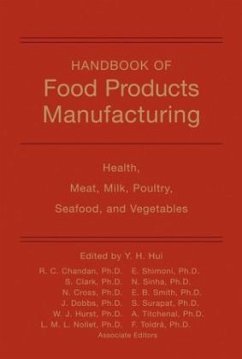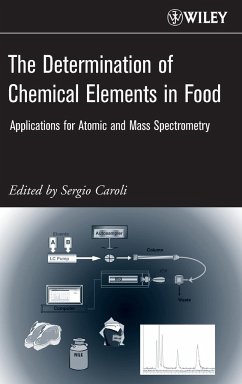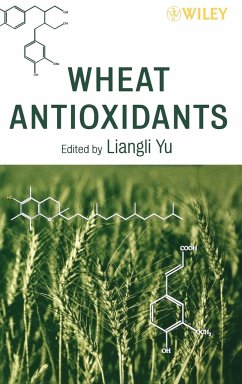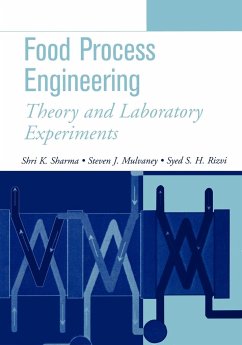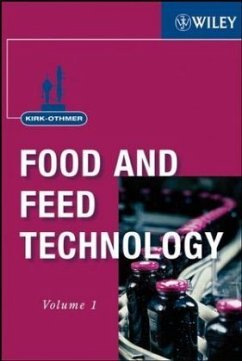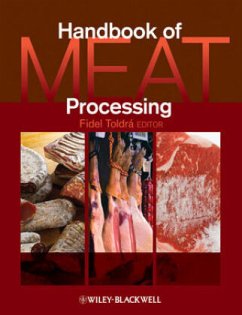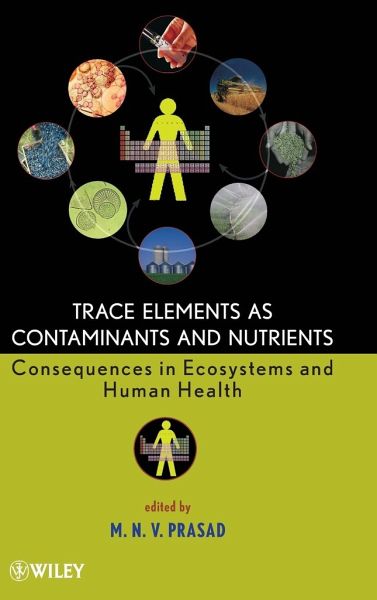
Trace Elements as Contaminants and Nutrients
Consequences in Ecosystems and Human Health

PAYBACK Punkte
119 °P sammeln!
Recent findings on trace elements in the food chain and the environmentTrace elements are inorganic chemicals usually occurring in small amounts in nature. Trace element deficiencies and contamination are increasing due to the increasing industrialization of farming systems, industrial pollution, and other factors. In the right amounts, trace elements are beneficial; in fact, several trace elements are essential for human and animal health. Deficiencies can produce devastating health defects, while excess exposure or consumption can be harmful or even fatal. With chapters contributed by leadin...
Recent findings on trace elements in the food chain and the environment
Trace elements are inorganic chemicals usually occurring in small amounts in nature. Trace element deficiencies and contamination are increasing due to the increasing industrialization of farming systems, industrial pollution, and other factors. In the right amounts, trace elements are beneficial; in fact, several trace elements are essential for human and animal health. Deficiencies can produce devastating health defects, while excess exposure or consumption can be harmful or even fatal. With chapters contributed by leading experts in their specialty areas, Trace Elements as Contaminants and Nutrients: Consequences in Ecosystems and Human Health:
_ Uniquely consolidates information on plant and animal nutrient requirements, fortified foods, nutrient deficiencies, and excess exposure via air, water, and soil contamination
_ Addresses areas for which there is a lack of information, such as bioavailability and uptake biochemistry, membrane biochemistry and transport mechanisms, enzymology, mode of action and toxicity, human health implications (efficiency and deficiency of trace elements), and biofortification
_ Covers bioindication and biomonitoring as innovative biotechniques for controlling trace metal influences in the environment
_ Incorporates information on specific elements, including zinc, iron, calcium, iodine, cadmium, lead, arsenic, mercury, selenium, and more
_ Includes case studies
This is a seminal reference for scientists working in geochemistry, hydrology, analytical chemistry, environmental chemistry and biology, and separation science and technology; plant, soil, crop, agricultural, food, and water scientists; academic and regulatory professionals in these fields; and aid agencies and non-governmental organizations.
Trace elements are inorganic chemicals usually occurring in small amounts in nature. Trace element deficiencies and contamination are increasing due to the increasing industrialization of farming systems, industrial pollution, and other factors. In the right amounts, trace elements are beneficial; in fact, several trace elements are essential for human and animal health. Deficiencies can produce devastating health defects, while excess exposure or consumption can be harmful or even fatal. With chapters contributed by leading experts in their specialty areas, Trace Elements as Contaminants and Nutrients: Consequences in Ecosystems and Human Health:
_ Uniquely consolidates information on plant and animal nutrient requirements, fortified foods, nutrient deficiencies, and excess exposure via air, water, and soil contamination
_ Addresses areas for which there is a lack of information, such as bioavailability and uptake biochemistry, membrane biochemistry and transport mechanisms, enzymology, mode of action and toxicity, human health implications (efficiency and deficiency of trace elements), and biofortification
_ Covers bioindication and biomonitoring as innovative biotechniques for controlling trace metal influences in the environment
_ Incorporates information on specific elements, including zinc, iron, calcium, iodine, cadmium, lead, arsenic, mercury, selenium, and more
_ Includes case studies
This is a seminal reference for scientists working in geochemistry, hydrology, analytical chemistry, environmental chemistry and biology, and separation science and technology; plant, soil, crop, agricultural, food, and water scientists; academic and regulatory professionals in these fields; and aid agencies and non-governmental organizations.





